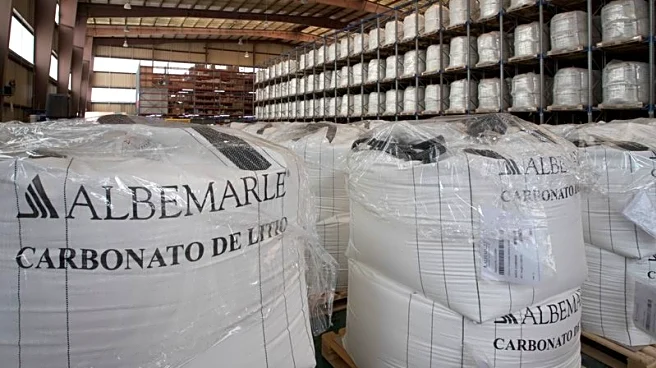What's Happening?
Olive loaf, a processed deli meat popular from the 1940s to the 1970s, has seen a significant decline in popularity due to health concerns and changing consumer preferences. Once a staple in American lunchboxes, olive loaf was known for its distinctive appearance, featuring green olives and red pimentos embedded in the meat. It was marketed as a quick and affordable lunch option for middle- and working-class families. However, starting in the 1970s, growing concerns about sodium, preservatives, and processed meats led to a perception of olive loaf as unhealthy. Today, major health agencies warn that regularly consuming processed meats can increase the risk of cancer, heart disease, and Type 2 diabetes. Despite nostalgia among some consumers, olive loaf has not maintained the cultural significance of other processed foods like Spam and Kool-Aid.
Why It's Important?
The decline of olive loaf reflects broader shifts in consumer preferences towards healthier and more natural food options. As awareness of the health risks associated with processed meats has increased, consumers have gravitated towards fresh, natural, and authentic foods. This trend has significant implications for the food industry, as companies must adapt to changing demands by offering healthier alternatives. The nostalgia associated with olive loaf highlights the cultural impact of food and how it can evoke memories and emotions. However, the potential for a revival of olive loaf is limited by its association with unhealthy eating habits and its visual and textural oddness.
What's Next?
While there is some interest in nostalgia marketing, the likelihood of olive loaf making a comeback is slim. Any revival would require rebranding as a healthier product with lower sodium and fewer preservatives, possibly even offering turkey- or plant-based versions. The food industry may continue to explore ways to capitalize on nostalgia while meeting modern health standards. As consumer preferences evolve, companies will need to balance nostalgia with health-conscious offerings to remain competitive.
Beyond the Headlines
The story of olive loaf underscores the cultural and historical significance of food in American society. It highlights how food trends can reflect broader societal changes, such as the shift towards healthier eating. The decline of olive loaf also raises questions about the sustainability of processed foods and the ethical considerations of marketing products that may pose health risks. As the food industry continues to innovate, it must consider the long-term health implications of its products and the cultural narratives they create.










